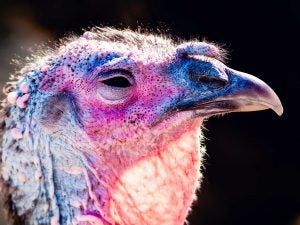I need to apologize to my Thanksgiving guests: I’ve decided to buck one of the holiday’s newest trends.
I’m hosting my first turkey-day dinner this year. I picked out the perfect place settings. I coordinated all of the side dishes to create a balanced meal. I’ve instructed my sister-in-law to buy our favorite wine from the local winery. Our desserts will offer a selection of palate-pleasing options. Heck, even my dog Mischa has an appointment at the groomer’s next week (much to her chagrin!).
But I won’t be treating my family and friends to a designer turkey.
Perhaps this is a total faux pas for any woke hostess, but I refuse. See people are dishing out $200 or more for these birds. Why are they so expensive? Because they come with a bunch of fancy, though mostly meaningless, labels. Organic. Free-range. Hormone-free. Chemical-free. GMO-free. Heritage breeding. Small flocks. Savvy hosts can even visit the birds on the farm to see whether they have acceptable personalities and seem happy. And orders were to be placed by Labor Day!
Nah, I’ll pass. But aren’t my guests worth the high-priced bird? While I’m happy to plan the perfect day, I’m positive none of them will be upset if I don’t waste my money on spoiled turkeys. Instead, I’ll treat them to a well-cooked frozen turkey bearing the store-brand label. And I won’t feel bad because I trust the American farm families that raised that turkey.

My turkey probably wasn’t free range, but that’s OK. Farmers often keep turkey inside climate-controlled barns to protect them from disease, extreme weather, and predators. They have plenty fresh water and an appropriate diet. And they have plenty of room to move around and interact with their friends.
My turkey didn’t have a label indicating it was hormone free, but it will have only naturally-occurring hormones. That’s because the federal government prohibits farmers from using hormones in turkey production. The irony is that even that designer turkey comes with hormones, because all living things have hormones.
So then how do we have such big birds? It isn’t genetic modification either. Farmers have naturally bred turkeys so they’re bigger in favorable areas. Contrary to the narrative of some animal-rights groups, this isn’t a detriment to the birds. They’re still able to move and function as normal; they just grow better.
I also didn’t splurge for an organic turkey. Contrary to popular belief, organic foods generally have the same nutritional profile as their non-organic counterparts. And as for taste, there is no empirical evidence suggesting organic tastes better. The conception probably comes from our preconceived notions and biases. In other words, we’re told organic tastes better so we think it does.
And while some folks might want to “get to know” their bird and meet its flock, I’m not really interested in that. I have more important things to do, and I don’t imagine it’s all that interesting.
The only legitimate difference between my turkey and one of those designer turkeys is its temperature. Mine is frozen. I’m sure a fresh turkey tastes better, as do all foods. And maybe next year I’ll go down to the local farmer’s market to buy fresh. But the difference certainly isn’t worth $200.
So, friends and family, I’m sorry you won’t have a designer turkey for dinner. Actually, I take that back. Sorry, not sorry.
Amanda Zaluckyj blogs under the name The Farmer’s Daughter USA. Her goal is to promote farmers and tackle the misinformation swirling around the U.S. food industry.



